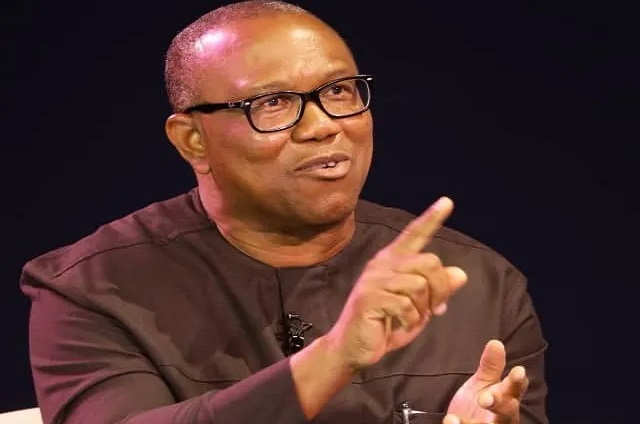Former presidential candidate of the Labour Party and prominent opposition figure, Mr. Peter Obi, has expressed strong concern over Nigeria’s growing debt burden, following the recent approval by the Senate of additional foreign and domestic borrowing totalling trillions of naira.
In a statement shared on his official X page on Tuesday, Obi criticized the Senate’s July 22 approval of new external borrowings amounting to $21 billion, €2.2 billion, and ¥15 billion for the 2025–2026 fiscal cycle. The lawmakers also approved a N750.98 billion domestic bond issuance and a €65 million grant.
With Nigeria’s public debt already standing at about N149.39 trillion as of Q1 2025, the newly approved loans, equivalent to roughly N37.2 trillion, would bring the total debt to an estimated N187 trillion. Obi warned that “our debt might likely be over N200 trillion by the end of 2025.”
He noted that even after the recent GDP rebasing from N269.2 trillion (about $180 billion) to N372.8 trillion (approximately $243.7 billion), the new debt figures translate to a debt-to-GDP ratio of over 50 percent, “the highest… in our history as a nation.”
“The government has borrowed the equivalent of nearly 70% of our previous GDP,” Obi observed. “Even with the rebased GDP, it still reflects over 50%, a deeply troubling sign.”
The former Anambra State Governor lamented the growing mismatch between Nigeria’s mounting debt and the lack of measurable improvement in vital sectors such as education, healthcare, infrastructure, and security.
“We are accumulating very exponential levels of unsustainable debt with little or nothing to show for it in critical areas such as education, healthcare, electricity generation, security of lives and property, and pulling people out of poverty,” he said.
He decried the state of the nation’s infrastructure, pointing out that 135,000km out of Nigeria’s 195,000km road network remains unpaved and largely unusable. In the power sector, he said less than 5,000 megawatts are available to serve a population of over 200 million.
Obi also drew attention to the deteriorating security situation, despite the rise in security expenditure from N2.98 trillion in 2023 to N4.91 trillion in 2025. He cited reports indicating that over 10,217 people were killed and 672 villages sacked between May 2023 and May 2025.
In his words, “Security of lives and property has deteriorated… despite increased spending.”
Highlighting a worsening humanitarian situation, he referenced the recent alarm raised by Médecins Sans Frontières (Doctors Without Borders) over severe malnutrition in Northern Nigeria, particularly in Katsina State, noting that, “652 children have already died as the malnutrition crisis worsens.”
He reiterated that borrowing is not inherently wrong but must be tied to productive and transparent investments. “Borrowing is not inherently bad if it is sustainable and tied to productive investments with measurable outcomes,” Obi explained.
“Unfortunately, this current pattern of borrowing without accountability, without transparency, and without transformational impact is simply mortgaging the future of our children.”
He urged the federal government to adopt more responsible fiscal practices, reduce the cost of governance, plug financial leakages, and prioritize investments in human capital.
“It is time to stop this fiscal indiscipline,” he said. “We must build a New Nigeria, where leadership is responsible, development is people-centred, and every kobo borrowed or spent delivers a measurable impact.”
Obi concluded with a passionate appeal for a return to prudent economic management and visionary leadership, warning that continued reckless borrowing would only deepen poverty and erode public trust.

